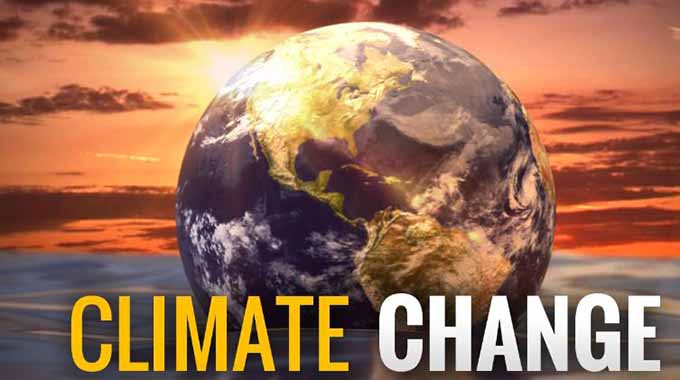Youths vital in climate change adaption

Business Reporter
The Ministry of Environment, Climate Tourism and Hospitality Industry in partnership with the Africa Initiative on Climate Change (AYICC) has come up with a learning and skills development project that seeks to capacitate indigenous Zimbabweans, especially youths in the fight against climate change.
Funded by the United Nations Climate Learning Partnership, the projects is aimed to capacitate youth groups, particularly in the rural areas on climate change, impacts and action.
The initiative came as the Government has realised that there is need for youth groups and organizations to understand the nature and devastating effects of climate change as well as business opportunities they can explore like renewable energy, tree nursery, waste for livelihoods.
The other key drive behind the initiative is to provide a platform for young women and men nation-wide to participate meaningfully in the drive aimed at achieving resilient communities by increasing understanding of climate related challenges and opportunities.
This resonates well with Article 6 of the United Nations Framework Convention on Climate Change (UNFCCC), Action for Climate Empowerment which calls on governments to develop and implement educational and public awareness programmes, train scientific, technical and managerial personnel, foster access to information, and promote public participation in addressing climate change.
Speaking with the Herald Business recently, climate change expert with the Ministry of Environment, Climate, Tourism and Hospitality Industry Mr Tatenda Mutasa said it was important to involve youths who constitute more than 60 percent of the country’s population in issues of climate change.
“This is on the most important projects in the country where young people have been given the platform to raise and express their concerns and proposal on how they can tackle climate change. We have managed to come up with thematic youth committees that can assist communities to adapt to climate change.
“We encouraged them to be engaged with a spirit of voluntarism, putting their ideas, time and energy into working towards the goals of human development and strive to help the country to achieve its commitment to 2030 Sustainable Development Goals, because it can’t be done without the participation of the youth.
“A country that ignores or disrespects more than half of its population cannot move ahead and will not achieve a higher human development status,” said Mr Mutasa.
He added that youths in rural communities must adapt the adverse effects of climate change by engaging in conservation practices, use of renewable energy sources, recycling waste among others.
“As we are fighting the effects of climate change we are also creating employing for them (youths).
“We want them to also look at the positive side of climate change, that is, the opportunities which if well utilised they will create thousands of jobs,” he said.
AYICC Zimbabwe project manager Ms Elizabeth Gulugulu also said the future of this planet and the next generation lies in the hands of today’s youths.
“Youths can help stop climate change in their own simple yet purposeful ways such as; joining environmental organizations or groups; participating in various governmental, non-governmental, and school or community programs and projects against climate change. They joining clean-up drives at school or in community; participating in tree planting and go-green activities; garbage picking and recycling initiatives; getting involved in environmental protests and campaigns.
“Using social media like Facebook, Twitter or Instagram in promoting climate change and environmental awareness to the public; limiting the use of plastics; helping report illegal activities to authorities; walking or biking in short distances instead of riding fuelled vehicles; segregating garbage at home and lastly, encouraging our friends, schoolmates and our family to do what we are doing. Doing those things can help mitigate climate change.
Ms Gulugulu said youths’ must realise that they have a moral responsibility towards the protection of the environment and the planet.
“Stopping climate change is not easy but, if we work together as one, our micro-efforts will have a macro effect on our environment and our planet. The survival of every living being on Earth depends on how we handle our environment.
“We humans are the highest form of being in this planet, so we are to blame if things go wrong in our planet. To me and to all the youths around the world, let us act now. Let us be involved in this fight. As a young generation, let us help the former generation in shaping our environment. Our voice matters and our life matters. So what are we waiting for? Let us stand together in stopping climate change,” said Ms Gulugulu.
Green Impact Trust, monitoring and evaluation officer Mr Takudzwa Mashakwe encouraged youths to engage in environmental friendly, climate-smart agriculture technologies which increase production and productivity.
“Making agriculture more attractive to young people can help create decent employment opportunities for them in rural areas and reverse perceptions and stereotypes that agriculture is hard and less attractive to venture into.
“Migrating to urban areas no longer guarantees jobs and employment opportunities and increasingly many development organisation now say it is critical to mainstream youth participation in all rural development programmes,” he said.










Comments